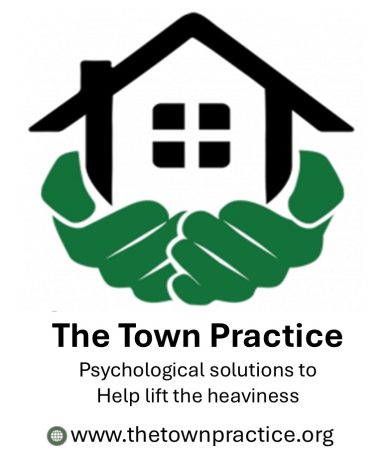How can we help?
Scroll down to find the right service that best meets your needs.
Therapy Services

Individual Therapy
To Support You
According to the Office of National Statistics (ONS), 47 per cent of adults in the UK (that’s nearly half) have reported experiencing “high levels” of anxiety, due to the impact of the coronavirus pandemic, climate change and the cost-of-living crisis, which many experience as crushing or overwhelming.
Add to this list relationship difficulties at home, at work and other areas in our private lives can leave us struggling with fearful uncertainty.
You are not alone and I'm here to help.

Couples or Family Therapy
For you and your partner or family
Just because we love someone, it doesn’t always mean we know how to effectively communicate with them or them with us, especially when we don't see eye to eye; right?
Well quite often we can feel unheard or misunderstood, or the calm, tranquil communication we once had has been replaced with raised voices, tears and sadness.
We can help you listen differently and find new ways to be heard that works for everyone.

Parental Support
Tantrums, screamings, kicking, biting, not sleeping, isolation, not eating much, the list goes on. Sound familiar?
If your child is under the age of 10 years old and displaying any of these behaviour types, I can help you connect with your child, in ways you may not believe.
Make contact for a free 20 minute online consultation to find out more.
For children with challenging behaviour

Teen Therapy
Being an adolescent these days is so much harder than it used to be. Not having contact with friends or peers for 18 months due to the pandemic, with the rise in usage of social media, more time spent online than with others face to face, can all reduce a young person’s natural ability to form healthy, connected relationships. These can impact on their self-confidence and those feelings can quickly turn inwards with devastating effects. Include on top everyday challenges such as exams, friendship breakdowns, separation or bereavement, these can leave many teems feeling ill-equip to manage such overwhelming emotions. Without the usual learnt life-skills picked up from personal interactions, the structure needed to appropriately process these events can be misplaced or absent all-together, resulting for some in self-harm, bouts of anger, suicidal ideations to name but a few and can leave young people feeling hopeless.
At times like this, everyone could do with some support.
We are here to help.
Designed for Adolescents

Solutions to help lift the heaviness in your organisation
Organisational Services
Choose the right solution for your organisation;

Reflective Practice
Reflective Practice is a dedicated space used to think about how we work, consider how it impacts us, our service users, those we manage and our stakeholders. It provides us with space to consider different ways of operating, so we deliver the best service we can, whilst taking care of ourselves. It provides time to evaluate what we do as an organisation and why, then helps us think about how to implement positive change.
Reflective practice promotes emotional intelligence and helps to build confidence. It explores interpersonal dynamics, personal and departmental workplace challenges and gives leaders time to digest what information comes to light. ‘Best practice’ is often the by-product of productive reflective practice sessions.
Non-clinical staff who may also benefit from reflective practice may include teachers, police officers, sales executives, pastors, fitness trainers ED & I directors and members of any senior leadership team etc., as all professions work with people and needs to consider how to interact better, as this will improve productivity, retention and a healthier all-round working environment.

Clinical Supervision
Clinical Supervision is a formal process of professional support, reflection, evaluation and learning, that contributes to individual insight and development.
Clinical supervision allows a qualified supervisor the opportunity to hear what is taking place between you and the client or patient and works as a mirror, so reflecting the unseen dynamic taking place between you and your client back to you, for you to consider your approach with fresh eyes.
Many clinical staff i.e., therapists, nurses, doctors, social workers etc. work with people who are likely to be in physical, psychological or emotional distress and as such, this can put pressure on them, which can be demanding, exhausting and accumulative.
Clinical supervision offers support to new and experienced healthcare professionals with a place to reflect and evaluate their work, taking into account each person's intersectionality and protective characteristics (Equality Act 2010), including cultural and racial difference. It also complies with all therapeutic regulatory bodies mandatory stipulations for ethical work practices.
Reverse Monitoring

Reverse Mentoring is a space carved out especially for middle and senior managers who wish to understand themselves better in relation to race and culture, and who want a healthier professional relationship with the diaspora staff they manage.
You will work on a one-to-one basis with a mentor who doesn’t look like you and begin to explore all those ‘politically incorrect’ thoughts, feelings, behaviours and questions with them from a place of trust, confidence and respect.
You will be set personal development homework, which will surprise and inspire you, leaving you with more confidence in your liaison with diaspora staff and increased staff retention.

Safe Spaces for Diaspora Staff
What is Safe Space?
Safe space is a reserved forum for diaspora staff within your organization to attend, share personal experiences and as a result become more productive. It is hosted online and is delivered by qualified and experienced practitioners, who are trained to manage and support many of the difficult race-related conversations staff often need to have but are unsure how to address them in the workplace. This confidential space offers peer to peer support and can be facilitated as frequently as is needed.
Why do we need Safe Space?
Safe Space was a pilot which the East London Foundation NHS Trust (ELFT) ran for a year, to support diaspora staff during an unprecedented period in time, where an extraordinary chain of events took place which changed our world (the discovery of Covid 19, reports in the UK that the pandemic was disproportionately killing Black and Brown people, the murder of George Floyd, reports of increased verbal and physical attacks on Black, Brown and other diaspora people (BBC News 2020-2021) etc. In the Trusts desire to support frontline staff who were experiencing increased racial abuse, Safe Space was commissioned. This not only gave diaspora staff a place to off-load but provided the Trust with a report at the end of the commission, together with recommendations to better support their staff; many of whom were middle and senior within the Trust themselves.
Watch this video testimonial from the Chairman of the ELFT NHS Trust.
Therapeutic services that helps to lift the heaviness
"Drop me an email anytime with any questions you have regarding our services. I'm happy to help."
Fiona Beckford
We need your consent to load the translations
We use a third-party service to translate the website content that may collect data about your activity. Please review the details in the privacy policy and accept the service to view the translations.
